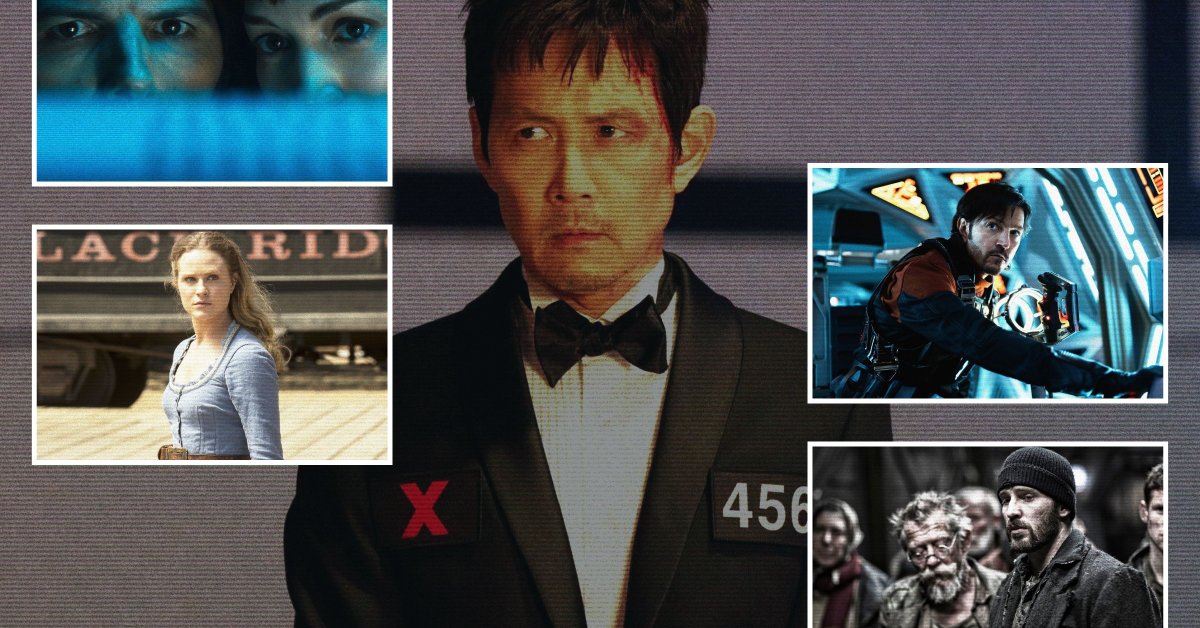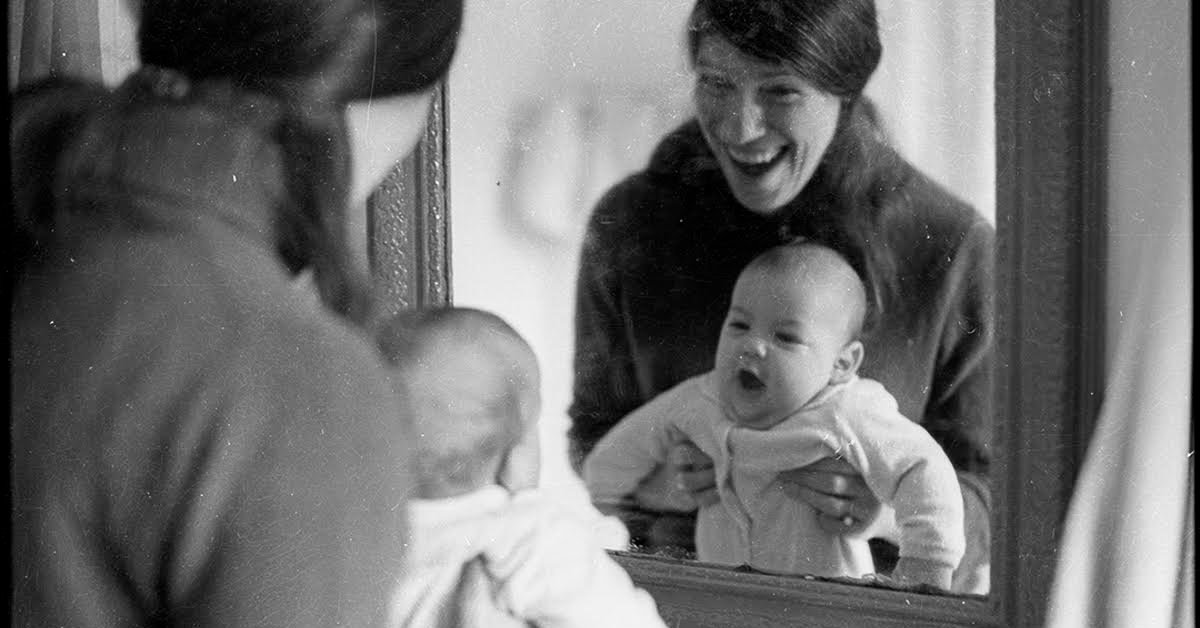Squid Game has come to an end with six new episodes that were filmed back-to-back with last year’s sophomore season, rewarding a global audience who were left on tenterhooks by the cliffhanger of Season 2. There, Seong Gi-hun (Lee Jung-jae)—also known as Player 456—led a thwarted coup on his masked captors in the deadly elimination contest that promises to reward debt-stricken Koreans with potential billions to save them from a life of dehumanising insolvency.
There’s something affirming about watching dystopian television in our current moment, not because it distracts us from existential and political crises, but because it articulates our own helplessness back to us within the momentum of a drama, hopefully offering insight, empathy, and catharsis by the end. As in Squid Game, dystopian drama often plays on the barbarity of entertainment, impossible promises of curing human weakness, and finds salvation in our best qualities: solidarity, compassion, and unity. Dystopian drama is what happens when societal upheaval and science-fiction unite to reflect the danger and darkness of the modern world, and the only weapon against it is the human condition.
If you’re still in the mood for draconian governments, societal decline, and invasive technology pushing us towards survival, here are ten recommendations for dystopian series to watch after the climactic finale of Squid Game.
If you want more mazes: Westworld
Based on a nifty but slight Michael Crichton film from the ‘70s, Jonathan Nolan and Lisa Joy imagined a world where corporations have the final technological say on what it means to be human. The show is (initially) set in a recreated Wild West theme park where guests interact with near-flawless androids, but the advanced, erratic programming of a few special robots sets them on a course out of their maze-like sanctuary and beyond the borders of creation. It’s a thrilling, affecting, and intelligent map out of dystopia.
If you want relationships: 12 Monkeys
A SYFY adaptation of a beloved ‘90s sci-fi film sounds like a recipe for disaster, but for four seasons 12 Monkeys surpassed expectations in its story of an exciting time-travel mission to fix the past from a virus-ridden, dystopian future. Over the 47 episodes, we grow close to characters on each side of the “past/future” divide, like scavenger James Cole (Aaron Stanford) and present-day virologist Cassie Railly (Amanda Schull), whose missions reveal just how fraught and fragile our non-apocalyptic reality actually is.
If you want violent secret societies: Utopia
This may be Britain’s most exciting contribution to dystopian sci-fi this century—yes, that makes it better than Black Mirror. In the series, fans of a cult graphic novel try to discover how it managed to predict major world events and are soon hunted by lethal agents of the sinister “Network.” It was cancelled after two short seasons (and was further punished with a subpar American remake) but this dystopian series is filled with twists, sociopathy, and secret puppetmasters.
If you want rebellion: Andor
A few blockbuster series focusing on themes of injustice and unity have debuted since the Squid Game phenomenon took off, and this Star Wars saga of Cassian Andor (Diego Luna) rising through the ranks of the Rebel Alliance captures the shaky bonds and emotional surges that Squid Game channels through its three seasons. In particular, the “One Way Out” prison arc of Andor Season 1 feels almost exactly like the moments Players must go from paranoid solitude to fiercely felt camaraderie during the games.
If you want weird prison vibes: Severance
One of the major ways that Apple TV+’s psychological sci-fi series mirrors Squid Game is that both the Players and the Innies of the severed floor of Lumon Industries (where they can only remember their work hours and have no idea of their outside lives) have a conflicted sense of belonging in their austere, windowless prisons. The Players believe that the reward—life-changing money—is worth the impossible odds and horrid violence, and many express a desire to remain in a contest that dangles hope in front of them. Likewise, the security of the pristine severed floor discourages many Innies from exploring beyond their authorized borders.
If you want class struggle: Snowpiercer
There’s a Korean connection to this four-season TNT sci-fi series—in between being a French graphic novel and an American show, Snowpiercer was the English-language debut of Korean director Bong Joon-ho. Both film and series are set on the Snowpiercer train, humanity’s only vessel for survival in a harsh, apocalyptic winterworld, which is rigidly divided by class and provides a linear, front-to-tail path towards class revolt for the newly oppressed. Daveed Diggs, Jennifer Connelly, Sean Bean and more play passengers from the full range of social classes involved in the plight to keep the fragile Snowpiercer on the rails.
If you want twisted contests: Dead Set
Before he launched his multi-decade dystopian anthology Black Mirror, Charlie Brooker satirized the intersection between entertainment and violence with a miniseries about a zombie outbreak hitting the Big Brother house in Britain. Like Squid Game, Dead Set juxtaposes familiar cultural symbols and settings with grim, inevitable explosions of blood, straddling the line between twisted, compelling drama and a sobering reminder of violence lurking in our present society.
If you want old-school conspiracy: The Prisoner
The British affinity for dystopia is all over literature (1984, Brave New World, A Clockwork Orange) but has historically crossed over into television in obscure and strange ways. This one-season triumph from 1967 is about a spy (Patrick McGoohan) imprisoned in a village by sinister forces who want something from him. Like Squid Game, The Prisoner beguiles the viewer by turning traditional symbols of familiar, homegrown calm (in this case, an idyllic seaside town) into disorientating weapons that keep the characters on a knife’s edge.
If you want more social criticism: 3%
In this Brazilian dystopian thriller, a future society has been cleanly but not equally divided between the impoverished “Inland” and affluent “Offshore” world, and 20-year-olds can attempt the arduous “Process” in order to protect themselves for life—only 3% of applicants succeed. As is the case in Squid Game, the aspirational “players” are well-defined and emotionally-driven, and it’s exciting to watch them battle the intellectual and physical challenges of The Process—but why are they pitted against each other in the first place?
If you want more games: Alice in Borderland
Based on a manga first published in 2010, this survival sci-fi series debuted on Netflix only nine months before Squid Game. In a parallel universe version of Tokyo, a band of young people are forced to compete in sadistic games modeled on the suites in a deck of cards. Led by Tao Tsuchiya and Kento Yamazaki, Alice in Borderland’s characters survive the puzzles and battles with logic and agility—and like Squid Game, a third season is releasing on Netflix in 2025.








